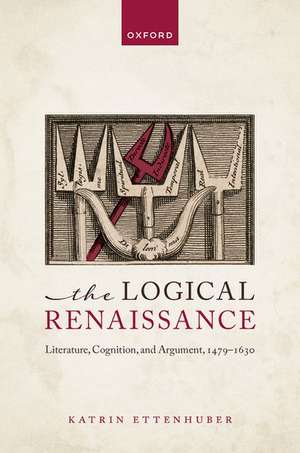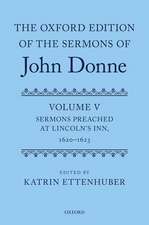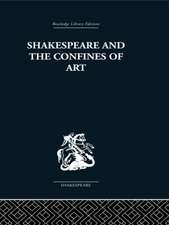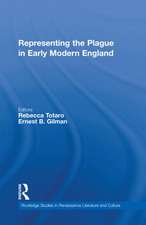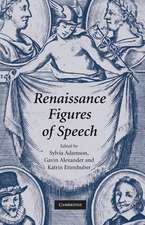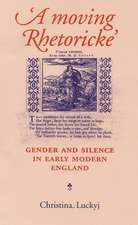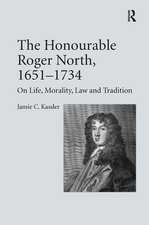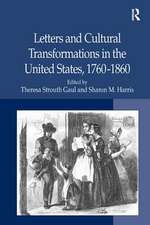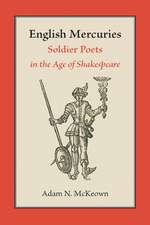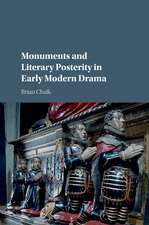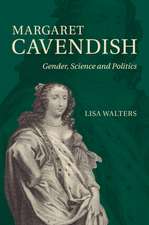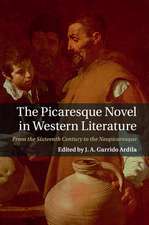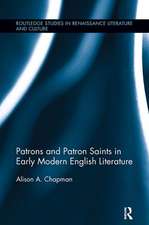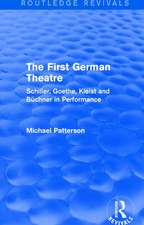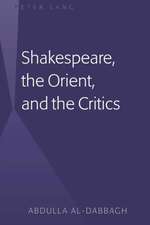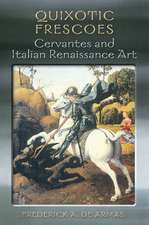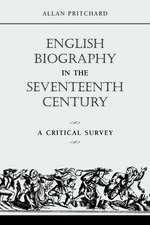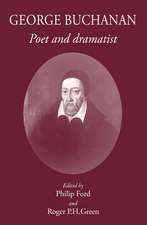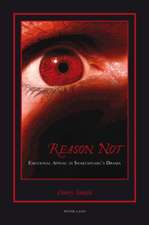The Logical Renaissance: Literature, Cognition, and Argument, 1479-1630
Autor Katrin Ettenhuberen Limba Engleză Hardback – 12 oct 2023
Preț: 487.85 lei
Preț vechi: 672.99 lei
-28% Nou
Puncte Express: 732
Preț estimativ în valută:
93.35€ • 97.73$ • 77.24£
93.35€ • 97.73$ • 77.24£
Carte disponibilă
Livrare economică 04-10 martie
Preluare comenzi: 021 569.72.76
Specificații
ISBN-13: 9780198881186
ISBN-10: 0198881185
Pagini: 318
Dimensiuni: 163 x 240 x 22 mm
Greutate: 0.61 kg
Editura: OUP OXFORD
Colecția OUP Oxford
Locul publicării:Oxford, United Kingdom
ISBN-10: 0198881185
Pagini: 318
Dimensiuni: 163 x 240 x 22 mm
Greutate: 0.61 kg
Editura: OUP OXFORD
Colecția OUP Oxford
Locul publicării:Oxford, United Kingdom
Recenzii
This strikingly original account of the role of logic in early modern England reconfigures our understanding not just of the intellectual and educational contexts that shaped literary production but of how thinking is put to work in the very fabric and form of treatises, poems, sermons and plays from Thomas Wilson and Edmund Spenser to Lancelot Andrewes, Donne, Shakespeare and early Milton. Paradigm-shifting and authoritative, it challenges and lucidly advances much that we thought we knew about rhetoric and the Renaissance. Every reader interested in the period will learn from this foundational study and delight in the brilliance of its ideas.
In this spectacular book, Katrin Ettenhuber meticulously reconstructs the place of logic within the structures through which the early moderns were taught to think and write. The subject is fascinating in its own right. But The Logical Renaissance finds in it a vantage from which to generate fresh interpretations of even the most familiar literary texts; moreover, it shows that to read early modern texts logically is to attend to the crucial significance of literature as the work of ethics. This is a bold, sophisticated, and critically sensitive study that will be required reading for all scholars of early modern literature and culture.
This close scholarly study is well researched and includes a reading list and a 22-page bibliography...Highly recommended. Graduate students, researchers, faculty.
The Logical Renaissance attempts to survey canonical literature of all forms in its relentless pursuit of logic's influence.
In this spectacular book, Katrin Ettenhuber meticulously reconstructs the place of logic within the structures through which the early moderns were taught to think and write. The subject is fascinating in its own right. But The Logical Renaissance finds in it a vantage from which to generate fresh interpretations of even the most familiar literary texts; moreover, it shows that to read early modern texts logically is to attend to the crucial significance of literature as the work of ethics. This is a bold, sophisticated, and critically sensitive study that will be required reading for all scholars of early modern literature and culture.
This close scholarly study is well researched and includes a reading list and a 22-page bibliography...Highly recommended. Graduate students, researchers, faculty.
The Logical Renaissance attempts to survey canonical literature of all forms in its relentless pursuit of logic's influence.
Notă biografică
Katrin Ettenhuber is the author of Donne's Augustine: Renaissance Cultures of Interpretation (OUP, 2011), editor of vol. 5 of The Oxford Edition of the Sermons of John Donne (OUP, 2015), and co-editor, with Sylvia Adamson and Gavin Alexander, of Renaissance Figures of Speech (CUP, 2007). She has published widely on early modern literature, theology, rhetoric, and logic.
